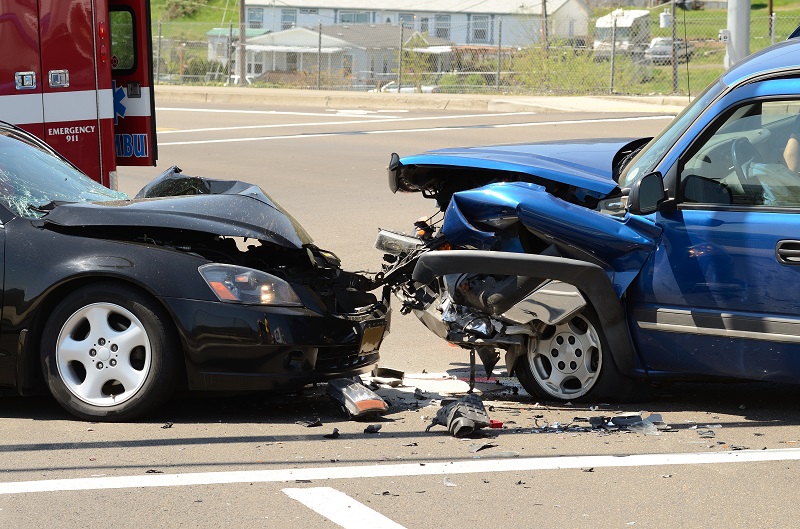
When a car accident occurs, car insurance will kick in to help cover the costs of the repairs. That is, unless your vehicle is totaled. A vehicle is considered totaled when the damage to the vehicle is extensive enough that it is deemed not worth repairing the damage. Whether or not a vehicle is considered a totaled car is determined by the insurance companies involved using a formula that varies from state to state.
If your vehicle is considered totaled after an accident, you should get an insurance settlement that includes the cash value of the car as well as other replacement costs such as sales tax and vehicle registration fees. It is important to understand what goes into a total loss car insurance settlement to ensure that you get a fair settlement with all replacement costs being considered.
In this FAQ, we cover the most common questions about total vehicle loss so that you know what to expect if you are getting a total loss car insurance settlement. You can also ensure that you get a fair settlement for your totaled car by working with the total vehicle loss attorneys of Anderson + Wanca.
When is a car considered totaled?
Generally, a vehicle is considered totaled when the cost of the repairs is too high compared to the pre-accident market value of the vehicle. Each state has a law that determines the formula for declaring a car totaled and some insurance companies may differ in what they consider totaled.
How is the total loss value of a vehicle determined?
There are several economic factors that go into determining the total loss value of a vehicle including:
- Actual cash value of the vehicle determined by make, model, year, pre-accident condition, mileage, and resale value comparisons
- Salvage value (post-accident value of the vehicle)
- Replacement costs including sales tax, title transfer, vehicle registration, and license plate transfer
- Other mandatory state fees
Once the actual cash value of the vehicle is determined, the insurance company will get an estimate for the cost of repairs. If the cost of repairs meets or exceeds a threshold percentage of the actual cash value of the car, it will be considered a total loss. The percentage threshold differs between states and some states may factor in the salvage value of the vehicle while other states may not.
What happens when your car is a total loss?
After your car is declared a total loss, the next step is for the insurance company to make a market value report for your vehicle to determine the settlement. This report is the basis for what the insurance company offers as a settlement, and you have a legal right to this report.
Am I obligated to accept the first offer for a total vehicle loss settlement?
The answer is no. You can request the market value report and estimate to review yourself before accepting an offer and you can negotiate the offer if you feel the original offer is not fair.
How do I negotiate a total loss?
The first thing you need to do is get a valuation of your own to compare to the settlement offer from the insurance company. This includes having an inspection of your vehicle done as well as an estimate for repairs. Make sure to keep documentation of all of these inspections so you can present them to the insurance provider to support your case for a higher settlement. You can also hire a total vehicle loss attorney to review your settlement and inspection and negotiate with the insurer on your behalf.
Who is responsible for paying my settlement?
If you are at-fault or there was no one else involved with the accident that totaled your vehicle, then you will be making a claim against your insurance company. This is called a first party claim and your insurance company will handle your claim based on the terms and conditions of your policy.
If another driver was at-fault for the accident, then you will file a third party claim against them through their insurance company. You do not have to let the insurance provider of the at-fault party inspect your vehicle to determine the extent of the damage, cost of repairs, or actual cash value of your vehicle. You can have your insurance provider determine this, or determine these values through your own inspections, and bill the insurer of the at-fault party. The at-fault party’s insurer will pay the settlement based on the liability coverage of the insurance policy of the at-fault party.
Is the insurance company or the repair shop involved on my side?
In short, the answer is neither. Regardless of whether you file a first party or third party claim, you will be stuck between the insurance company who is trying to limit their losses on the settlement and repair facilities trying to maximize their profits.
In many instances, insurance companies have relationships with repair shops in which the shop will offer estimates according to guidelines from the insurance companies in exchange for referrals. This lowers the cost of repairs but may leave out or restrict some proper repair techniques in order to reduce the cost. In these situations, the repair shop is working for the insurer’s best interests.
It is best to work with an independent repair shop to get a true estimate for the damages to your vehicle. In most states, you have the choice of which repair shop you go to. Your insurance company will offer a referral to their preferred shop, but you are not legally obligated to choose their referral. When you get an estimate from an unbiased third-party shop, make sure to get a detailed report in writing so it can be presented in the negotiation for your settlement.
What can I expect from the insurance company?
Insurance companies are legally required to present you with accurate information about your claim, however, they are not legally required to advise you on everything you are entitled to regarding the claim.
Why should I hire an attorney for my total vehicle loss settlement?
It is always in the best interests of insurance companies to limit their losses on settlements, and they typically work with repair shops that provide estimates based on the best interests of the insurer. The insurance company may also leave things out of your settlement such as transfer fees and sales taxes and they are not legally obligated to inform you of all of the entitlements available to you.
An attorney that specializes in total vehicle losses will inform you of your legal rights and help you get a fair settlement. They will review the documents of your claim, including the market value report and repair estimate as well as other applicable taxes and transfer costs. An attorney can also negotiate the settlement amount on your behalf to ensure you get a fair total loss car insurance settlement.
Total Vehicle Loss Representation from Anderson + Wanca
If you are seeking legal representation to get a fair total vehicle loss settlement, talk to our attorneys at Anderson + Wanca. Our attorneys have years of experience in dealing with total loss settlements and we can help residents in any state get the settlement they deserve. We will carefully review the documents involved in your claim, as well as your insurance policy, and ensure that the settlement you get for your vehicle is fair.
You can call Anderson + Wanca at (888) 505-0953 or email us at insurance@andersonwanca.com.

